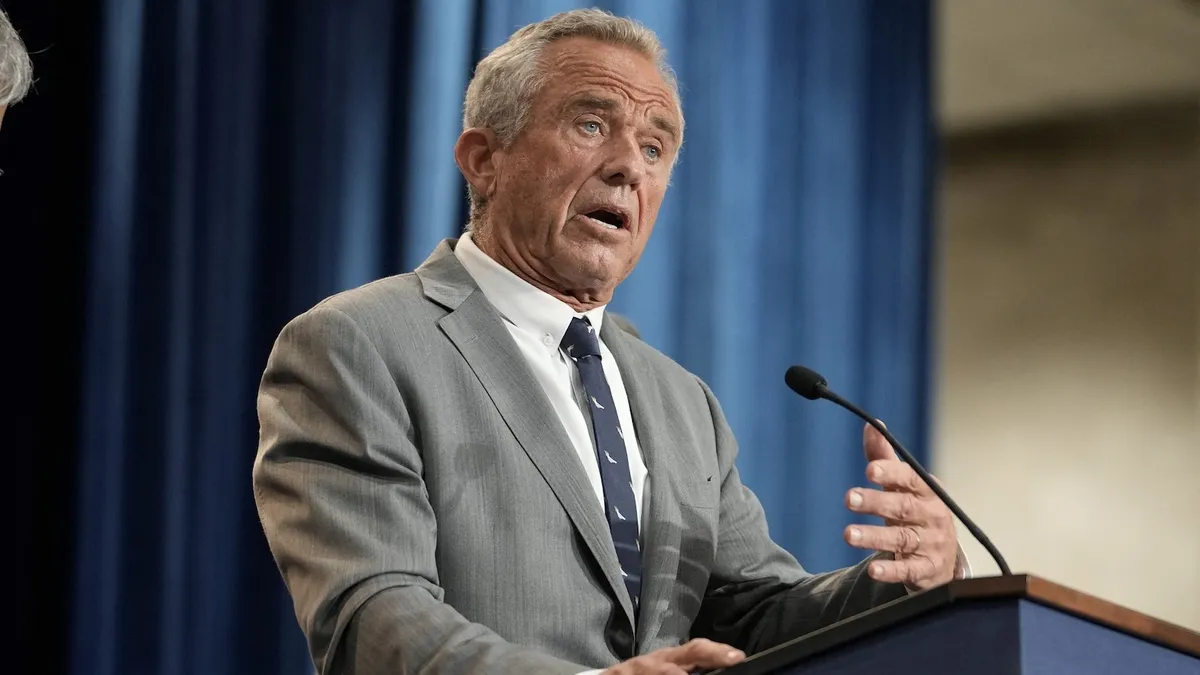
In a significant shift in vaccine approval protocols, Health and Human Services Secretary Robert F. Kennedy Jr. has announced that all new vaccines will be mandated to undergo placebo testing. This decision, characterized by a department spokesperson as a radical departure from traditional practices, aims to enhance the safety and efficacy of vaccines before they are approved for human use.
The new policy stipulates that in studies assessing new vaccines, half of the participants will receive a placebo—typically a saline shot—to serve as a comparison against the vaccine being tested. While placebo-controlled trials are standard for evaluating new drugs and vaccines, some experts argue that such trials may be unethical for vaccines already deemed safe and effective. For instance, providing a placebo to children in a trial for the measles vaccine could unnecessarily expose them to the risk of contracting the virus when a proven vaccine is available.
There remains ambiguity regarding what Health and Human Services defines as a "new vaccine." The criteria may include vaccines like the annual flu and COVID-19 vaccines, which are routinely updated to address circulating strains. FDA Commissioner Dr. Marty Makary has indicated that substantial updates to existing vaccines, such as those addressing seasonal strain shifts or antigenic drift, may be classified as 'new products' requiring additional clinical evaluation, as noted by a department spokesperson in an interview with ABC News.
Despite the new policy, the spokesperson suggested that the yearly flu vaccine, which has been in use for over 80 years and is considered tried and tested, might not be significantly affected. However, the implications for future COVID vaccines—frequently updated to remain effective—could be substantial. The spokesperson emphasized that federal health agencies will adhere to the Gold Standard of Science when determining the classification of new vaccines.
Secretary Kennedy has long been an advocate for scrutinizing the safety of vaccines, asserting that placebo-based trials are essential to confirm that vaccines do not cause more harm than good. During the height of the COVID-19 public health emergency, vaccines were still put through placebo-controlled studies involving over 100,000 volunteers from diverse backgrounds to establish their effectiveness and safety.
Experts in the field emphasize that conducting placebo trials is vital not only for determining a vaccine's efficacy but also for ensuring its safety. Many childhood vaccines were initially validated through placebo trials, and decades of data from millions of recipients have demonstrated that these vaccines are overwhelmingly safe and effective. Once a vaccine is approved as safe and effective, subsequent versions typically undergo clinical trials comparing them to the already approved vaccine to evaluate their immune response.
Even after vaccines are released to the public, continuous monitoring for safety remains a priority. Scientists actively review reports of side effects or adverse reactions and share these findings with the public to maintain transparency and trust in the vaccination process.